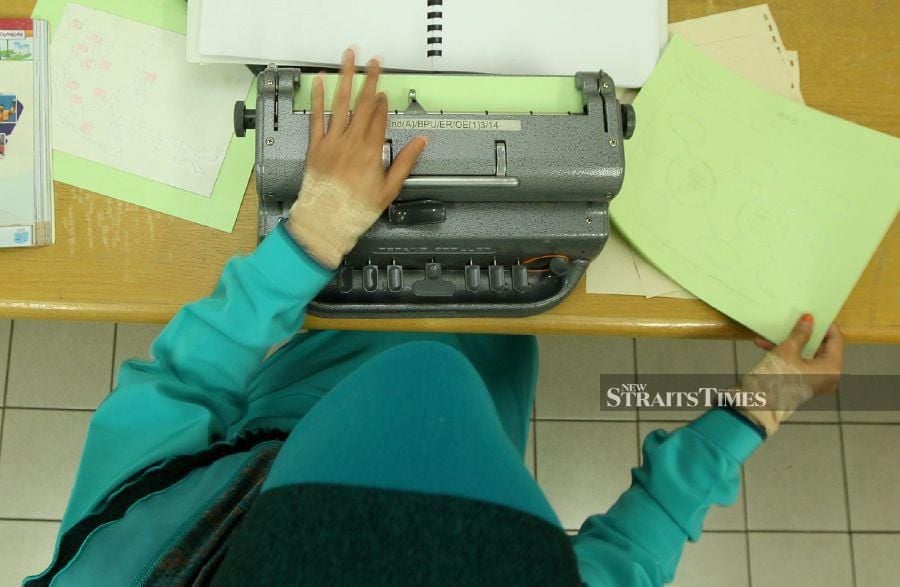LETTERS: I AM concerned about unemployment among the visually impaired and I hope efforts are made towards more accessible work environments for this group.
Malaysian companies should consider hiring more of these people, particularly for roles that align with their abilities.
Positions in customer service, telephone support, transcription, data entry and online content creation can be filled by the visually impaired.
Businesses run by the visually impaired should receive more attention and greater support from the government.
We need a comprehensive approach that includes policy reforms to streamline the registration and licensing processes for disabled entrepreneurs, training programmes for government officials, and support and incentive schemes for businesses run by the visually impaired.
This would ensure that they receive resources and assistance to thrive.
A visually impaired individual I met at the Malaysian Association for the Blind (MAB) pointed out the striking difference in accessible infrastructure between Malaysia and Europe, underscoring the pressing need for improvement.
Increasing awareness of accessible public spaces is essential for promoting inclusivity.
State governments should allocate funds to local councils to improve infrastructure, such as tactile pavements, Braille signs and auditory signals at traffic intersections. This is crucial for safe and independent navigation for the visually impaired.
The role of collaboration and partnership in bolstering support for the visually impaired cannot be overstated.
A good example is the partnership between Heriot-Watt University Malaysia (HWUM) and the MAB over the last three years.
This collaboration has raised more than RM20,000 for MAB through the EmPOWER programme and facilitated a diverse range of activities and volunteer opportunities for HWUM students to engage with MAB residents, enriching the lives of all parties involved.
Collaborations with academic institutions can provide organisations like MAB with access to expertise and resources.
University researchers can offer insights into accessibility issues, technology development and educational strategies tailored to the needs of visually impaired people.
By embracing these recommendations, we can pave the way for a brighter, more inclusive future for Malaysia's visually impaired community.
Let us unite as allies and advocates, committed to levelling the playing field and transforming lives for the better.
DR LEE J. PETER
Assistant Professor, Heriot-Watt University Malaysia
The views expressed in this article are the author's own and do not necessarily reflect those of the New Straits Times





